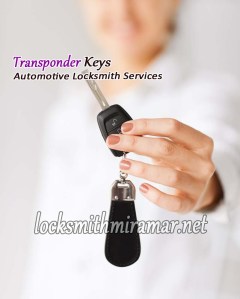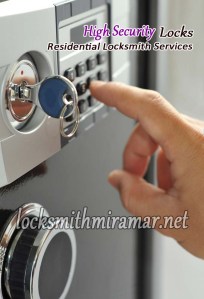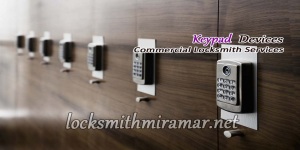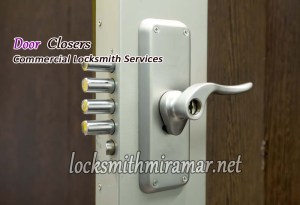
Are you finding it impossible to open your safe? First, don’t despair. It’s inconvenient and unnerving when you’re safe stops working, but you don’t have to let it get you down. Often, when a safe malfunctions, it happens while it’s locked. Let’s talk about some typical reasons why your safe won’t open. There are a number of things you can try yourself before you call a safe technician.
Time delay. Does your safe have a time-delay feature? Then you’ll have to wait for the period of time specified (usually 10 to 20 minutes), and then re-enter your code.
Deactivated code. Your safe may not be opening because your code’s been deactivated. In this case, you’ll have to reset the safe.
The wiring has become disconnected and/or damaged. The safe’s wiring may have gotten disconnected, or it may need repair. Inspect the wiring behind the keypad to see if any wires are loose, or if you see any that are kinked or cut.
- If it’s all okay, then you should temporarily disconnect the wire from the keypad, and then take out the batteries. Wait 20 seconds or so. Now, reconnect the wiring and reinstall the batteries.
- If the wiring’s actually damaged, then call a professional safe technician.
Dead batteries. It just might be this simple. There could be enough power to operate the keypad, yet not enough for the bolt work to function. Therefore, even if the keypad beeps and lights up as usual, the problem may be that all you have to do is replace the batteries. Be sure to use only reputable brand-name batteries, because off-brands commonly lose power fast.
Lockout mode. If you put in too many incorrect codes, a safe will go into a penalty lockout mode. Depending on what sort of keypad you have, you may hear a series of rapid beeps. If this occurs, wait 10 to 20 minutes or so, and then try to open the safe again.
Jammed bolt work. Can you hear your safe’s motor trying to retract the bolt work, yet it’s still not opening? If so, kick the door, or give it a good couple of bangs with a mallet. Yes, we’re not kidding, go ahead and do it ~ as long as you don’t pound the keypad or the handle. This ought to loosen the bolt work. After that, try pulling the handle in the opposite direction from what you usually do, and then enter your code. If you’re in luck, this should release some of the extra pressure on the bolt, so the handle will move more readily.
What if, even though you’re using the correct combination, your safe still isn’t opening? If your safe has a three-wheel combination lock (that is, three digits) then try this:
1 First, turn the dial to the left 4 times, until the 1st number of your combination aligns with the opening index. On the 4th time, be sure to stop exactly on your number.
2 Next, you need to turn the dial to the right 3 times, until the 2nd number of your combination aligns with the opening index. On the 3rd time, stop exactly on your number.
3 Now, turn the dial to the left 2 times, until the 3rd number of your combination aligns with the opening index. On the 2nd time, stop exactly on your number.
4 Finally, you should turn the dial to the right until it stops (around 95). If the dial doesn’t stop, then it’s time to repeat your usual opening procedure, dialing exactly each number of your combination. Remember that your safe will stay locked if you dial even a tiny bit past any number you’ve meant to stop on.
5 To lock your combination lock again, turn the dial 4 complete revolutions, to any number that’s not in your combination.
If your safe still won’t open, then there’s no denying the fact that you are going to have to hire a professional safe technician. Don’t drill your safe, or you’ll damage it!
What if your safe won’t lock at all, and stays open? Then check on these issues:
- You should first replace the batteries. Choose only name-brand batteries.
- Make sure the edges of the cover are aligned, and see that there isn’t any debris stuck in the edges.
- Make sure none of the bolts are bent or otherwise damaged, and see that the holes that they go into aren’t blocked by any debris.
- Try “locking” it even if the door stays open. If the locking mechanism still works, then you’ll know the problem lies elsewhere.
- Try lubricating the locking mechanism. If a spring is stuck, this may do the trick. Be sure to use the right lubricant. Lubricant for a combination lock is different from the lubrication you use for a keyed lock, which is normally graphite-based.
Did you misplace or forget the combination? It’s time to find a legitimate safe technician with the experience and expertise required to determine exactly what’s causing the problem. A topnotch safe technician will make your safe more secure than it was before, without doing any damage.
Don’t ever try to “crack” your own safe! Opening safes, and properly working with combination locks (whether mechanical or digital), are highly specialized tasks that call for exceptional precision, skill, and experience. Hire a trustworthy expert with a thorough understanding of the various locking methods and maintenance requirements of today’s safes.
One common mistaken belief about having your safe opened by an expert is that the safe will get destroyed in the process. Be on the lookout for people claiming to be professionals who don’t have the proper training and credentials. Instead, choose a seasoned safe technician you can count on, someone who is certified, bonded, licensed, background-checked, and insured. You need a dependable individual who will bring the right tools, and possess the necessary sensitivity and skill with sound and touch.
If you’re located any place in Miramar, Florida, you may want to contact Locksmith Miramar, where you can request a free consultation. Make sure all your questions are answered to your satisfaction before allowing any work to begin.
Aricle source here: WHAT YOU SHOULD DO IF YOUR SAFE IS JAMMED




 You want your home to be your sanctuary, a safe place from the rest of the world, where you can relax. In order to preserve your peace of mind, it’s important every day to keep an eye on the locks, points of entry, and the surrounding premises of your property.
You want your home to be your sanctuary, a safe place from the rest of the world, where you can relax. In order to preserve your peace of mind, it’s important every day to keep an eye on the locks, points of entry, and the surrounding premises of your property. Fortify your doors.
Fortify your doors.

